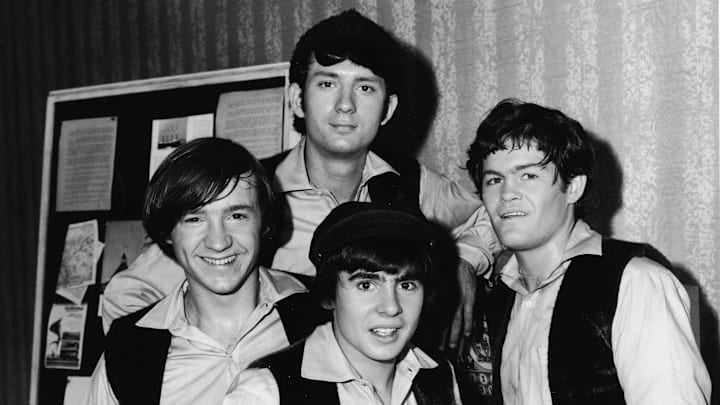Performers B through J
Beck
Has there ever been a more iconic moment in Grammy history than Kanye almost storming the stage to protest Beck’s win for Album of the Year over Beyonce in 2015? Kanye later felt compelled to admit that he was wrong to criticize Beck, who virtually single-handedly created Morning Phase. OK – he did have lots of help, but Beck wrote all the songs and played more than a dozen instruments on the album. That alone does not earn him a HOF induction.
But his string of six consecutive top-ten albums over a fifteen-year period in the early 2000s bolsters his resume. Nine top twenty singles on the alternative charts do as well. Beck has experimented with a lot of styles of music throughout his career, and that leads some people to downplay his achievements. They ignore that he has been both commercially and critically successful with almost every type of music he has tackled.
The Cranberries
The Cranberries only released eight original albums before the death of iconic lead singer Delores O’Riordan in 2018. Every one of them made the top twenty in their native Ireland. Several hit number 1 across the world and four of them cracked the top twenty in the USA. On the US Alt charts, they had eight top twenty singles and two number ones (“Zombie” and “Salvation”). O’Riordan possessed one of the most unique voices in all of pop music. Her style would be highly influential on later performers like Adele and Halsey.
Celine Dion
Here’s the thing. Mariah Carey is going to be inducted into the Rock and Roll Hall of Fame this year. You have to squint a bit to see Carey as a rock and roller. She is a pop singer. But she will get in. And when she does, it will make Celine Dion’s eventual entry a foregone conclusion.
Dion dominated pop music in the 1990s and she continued to put out overwhelmingly popular music (ten albums in the top ten in the USA, many of which reached number one – and far more when you consider international charts) for the next couple of decades. She has had eleven number one singles on the US Adult Contemporary chart. And she just presented the Album of the Year award to Taylor Swift at the 2024 Grammys. Her appearance brought down the house.
J. Geils Band
OK – we all have our personal favorites. If I could wave a magic wand and put one act into the Hall, it would be the boys from Worcester, Mass. If all you know by them is “Centerfold,” you are missing out on some outstanding rock and roll, from the early guitar and harmonica-driven blues stomps to the later sophomorically clever pop rock. This band had heart, soul, and could rock out live like few others. They have been nominated for induction five times, but have not gotten in. The last nomination was in 2018 which has me worried they are slipping through the cracks.
Jethro Tull
Thick as a Brick is a divisive album. To some, it is a foundational piece of prog rock. To others, it is pretentious pomp. I have a feeling that Ian Anderson recognized it as both. There is no similar confusion about the album that preceded it – Aqualung. That remains a mainstay blend of prog rock and standard hard rock. Tull would put out a number of very strong, innovative albums throughout the ‘70s, but mainstream audiences still had trouble figuring them out. I mean, the lead singer played the flute for god’s sake.
The confusion reached its peak in 1989 when everyone expected the newly-minted Heavy Metal Grammy to go to Metallica. Instead, Jethro Tull won it. In doing so, they became a bit of a joke to a generation of younger hard rock fans. I think they may still be paying a price for that. Forget metal – Tull is one of the seminal prog-rock bands and deserves a spot in the Hall.
Joy Division/New Order
Full disclosure – I don’t like Joy Division or New Order. I hope that doesn’t offend you too much. Just not my cup of tea. The point is, even a non-fan like me recognizes how important both incarnations of the band have been to a vital genre of rock music. Ian Curtis was one of the first musicians to recognize that punk music could change –indeed, had to change – if it was to remain a relevant, vital force in the culture.
You could make the case that all offshoots of punk, as well as a number of other key components of Britpop, derive from what Curtis began, and what his bandmates Peter Hook and Bernard Sumner continued with New Order after Curtis’ suicide in 1980. They were first nominated in tandem in 2022, and that makes sense to me. They should go in together.
